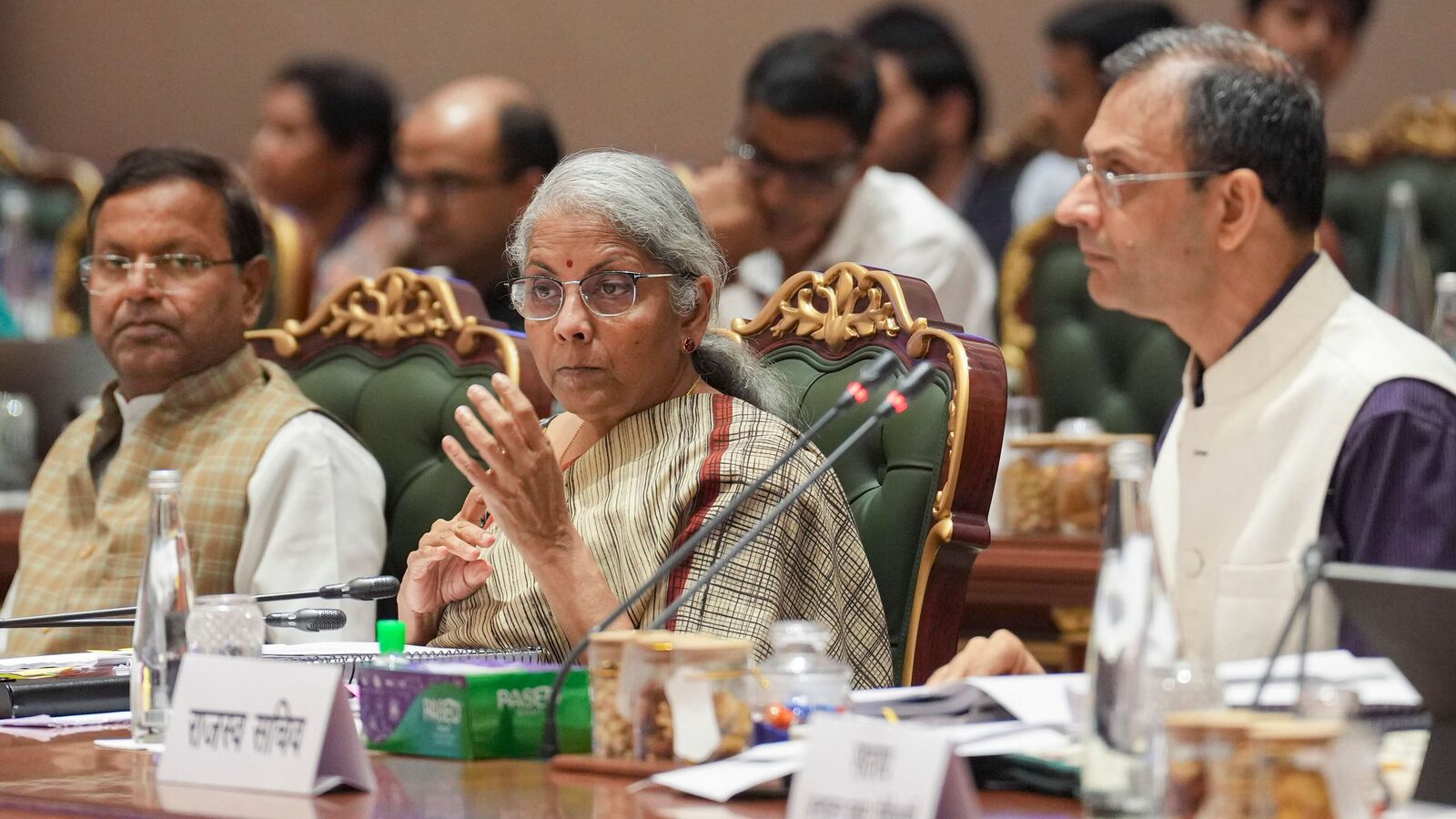The 56th GST Council meeting, chaired by Finance Minister Nirmala Sitharaman, will begin on September 3 and will conclude on September 4. There are high expectations regarding potential rate rationalisation.
The Council is likely to scrap the existing 12 per cent and 28% GST slabs, moving towards a two-tier structure of 18 per cent and 5 per cent. Additionally, a 40 per cent GST slab is anticipated for ‘sin’ goods like tobacco and other luxury items.
“The GST Council meeting (September 3–4) is expected to be a pivotal event, with anticipations of a potential tax rationalizations—especially benefiting consumption-led plays like auto and FMCG sectors,” said Arsh Mogre, Economist, PL Capital.
Also Read | MRF, JK Tyre to CEAT: Tyre stocks skyrocket up to 6% today; here’s why
As the GST Council meeting, market investors are speculating on which sectors could benefit and which might face setbacks.
GST Council Meeting: Sectors in focus
Auto
Automobiles, which are currently taxed at the highest slab of 28 percent along with a compensation cess, may soon face revised rates, with entry-level cars taxed at 18 percent and SUVs and luxury vehicles placed under a special 40 percent rate.
“The GST rate cut hopes have raised Nifty Auto Index by 10% in recent months, thereby pushing the forward P/E to close to the 10-year mean level. Considering the Union budget constraint challenges, we feel the GST rate cut stimulus will be selective for high demand-elasticity segments. We feel there is a higher probability of a GST rate cut (70- 85%) for 2Ws and compact cars, which favours our preference for the 2W segment (Overweight) in the automotive space & Maruti Suzuki in the passenger vehicle segment,” brokerage firm InCred Equities said in a note.
FMCG
Several media reports suggest that the Goods and Services Tax (GST) on fast-moving consumer goods (FMCG) such as shampoos, toothpaste, and talcum powder may be reduced from the current 18 per cent to 5 per cent. Items like milk powder, cooking oils, noodles, chocolates, and sugar, which are presently taxed at 12 per cent, are also expected to be moved to the 5 per cent bracket.
Consumer durables and electronics
Prices of electronic items such as select categories of TVs, washing machines, and refrigerators are expected to decrease as they will now be taxed at a reduced rate of 18 per cent, down from the current 28 per cent.
Insurance
Bihar Deputy Chief Minister and insurance GoM convenor Samrat Choudhary stated last week that the Centre has proposed to exempt life and health insurance premiums from GST. At present, these premiums are subject to an 18 per cent GST.
Also Read | Modi’s GST 2.0 is a high-stakes bet on the Indian consumer. Will it work?Tyres
The Automotive Tyre Manufacturers Association (ATMA) on Monday appealed to the government to slash the GST on automotive tyres from the existing 28 per cent to 5 per cent, stressing that tyres should not be treated as luxury items given their substantial cost burden on crucial sectors such as transportation, agriculture, mining, and construction.
Sin Products
The special 40 per cent rate will also apply to other demerit goods such as tobacco, pan masala, and cigarettes. An additional tax may also be levied on this category over and above this rate.
Disclaimer: This story is for educational purposes only. The views and recommendations above are those of individual analysts or broking companies, not Mint. We advise investors to check with certified experts before making any investment decisions.

